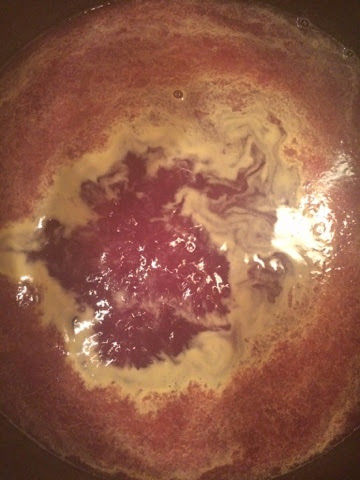What the New Testament says about wine (oinos).
The word Oinos means wine. According to Strong's it may be derived from the Hebrew word Yayin that I discussed in my previous post. Most people argue that this word can mean non-alcoholic wine, and I guess that can be true when specified (as in Matthew 9:17 with the word "new" preceding), but it is the word that means wine. Unless specified, a reader should assume that it means alcoholic wine by default rather than twisting it to fit your beliefs about wine. The word gleukos is the word for sweet wine or "new wine". This sweet or new wine is the grape juice that people drink with breakfast today. Now on to verses that use the word, oinos.
MATTHEW 9:17- here Jesus gives a parable of a bridegroom, an old garment, and this wineskin. You don't put new wine into an old wineskin. Why? Because in the fermentation process (which will inevitably happen), the wineskin will burst. That's okay right? Because you shouldn't drink that anyways! No, in this parable, Jesus tells them not to use an old wineskin for new wine or else you'll lose it. Put new wine into new bottles and both will be preserved, even after fermenting.
LUKE 7:33 - John the Baptist was peculiar because he did not drink wine (oinos). Jesus drinks wine (oinos) and you call him a drunkard or wine bibber. What reason would anyone have to call Jesus a drunkard if he only drank non-alcoholic wine?
JOHN 2 - the wedding feast at Cana. Jesus' first miracle. He made water into wine (oinos). The master of the feast said that usually people have good wine and wait for the senses to be dulled (due to drunkenness), then they bring out the poorer wine. The word for good means the same thing as it does in English, so no need to argue that it means morally good. The phrase, Oinos Kalos, means fine wine. They brought good wine out. Then they brought out great wine. If you read this scripture for what it says instead of entering into it with bias, you cannot get that Jesus made non-alcoholic wine.
I TIMOTHY 3:8- I think this verse scares people who believe that having any alcohol is sinful. If deacons aren't supposed to be "given to much wine" or "have a habit of drinking a lot of wine", what does that mean for everyone else? Think about this verse. Deacons, specifically, shouldn't drink a lot. That doesn't necessarily mean that everyone else should drink a lot, just like everyone else isn't allowed to be greedy of filthy lucre. Deacons and everyone else should should drink little. I just can't imagine any way to twist this verse enough to hold the position that alcohol, even one drop, is sinful. How can you work around this verse? Does anyone care to answer this or engage me on this topic?
I TIMOTHY 5:23- a little wine for your stomach's sake. This shows the custom and that the drinking water wasn't really drinkable. People often added wine to their water to clean it of bacteria. This is where people make the concession that you shouldn't drink wine, except for medicinal use. FUNNY thing is, most of these people don't feel the same way about medical marijuana. But that's another topic for another day. Anyways, Paul encourages a little wine here to soothe his stomach. This doesn't really support my case, but it is interesting.
TITUS 2:3- The older women aren't to be given to much wine just like the deacons. Deacons and other leaders in the church have the same standards to live up to.
Thank you for reading even if you don't agree with me. If you don't, I want to discuss it. I enjoy discussing the Bible especially with someone who doesn't see my side of the argument. It leads to greater understanding for everyone involved in the conversation.


I think you meant "you cannot get that Jesus made /non-/alcoholic wine."
ReplyDelete